I am creating azure keyvault using .net core 2.1 with OpenIdConnect with following AccessPolicies
AccessPolicies = new List<AccessPolicyEntry>()
{
new AccessPolicyEntry
{
TenantId = Guid.Parse(tenantId),
ObjectId = objectId,
Permissions = new Permissions
{
Secrets = new List<string> { "all" },
Keys = new string[] { "all" },
Certificates = new string[]{"all" }
}
}
}
using that, now, I can create keyvault but while go to newly created keyvault(in Azure portal) settings blade {Key,Secrete,Certificate} it shows warning
"The operation "List" is not enabled in this key vault's access policy."

Note :- As shown in above code "All permission are given".I can see it in azure portal.
What I have tried :- I have tried to refer following stack-overflow already question-answer
- Azure Keyvault - "Operation "list" is not allowed by vault policy" but all permissions are checked
- How do I fix an "Operation 'set' not allowed" error when creating an Azure KeyVault secret programmatically?
according to above stackoverflow answer(s) "need to pass the object ID of the service principal of the Azure AD application instead of object ID of your Azure AD application".
I have tried to find out object ID of the service principal of the azure AD application using following powershell script
Get-AzADServicePrincipal -ServicePrincipalName "<app client ID>"
it gives following result
I have tried to use "Id"(in above screenshot) in objectId of AccessPolicyEntry but it not solved problem.
Question :-
- Is any other permission need to set in AccessPolicyEntry?
- What should be the objectID in AccessPolicyEntry(currently, I am giving obectId of Azure AD application)?
- If needed objectId of service princpal. how can get it programmatically?
